
John Dyer
I am the creator of bestcommentaries.com. I am married to a beautiful woman, far too smart and godly for me, and I have two bright and creative children. I love working at the intersection of technology and faith, through both writing and coding.
Libraries
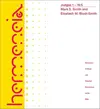


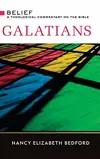

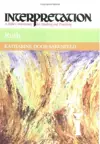

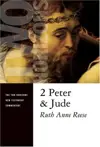

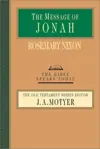

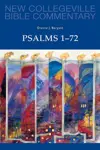

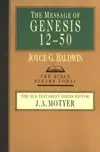

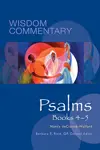

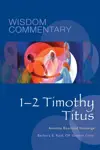

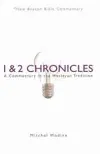

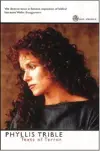



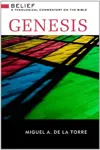

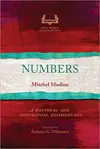

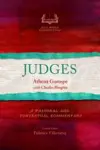

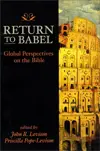





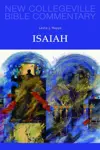

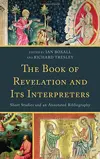

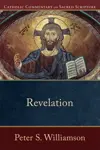

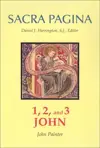

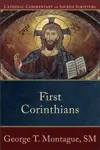

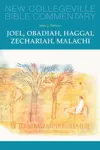

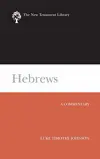

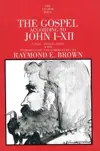

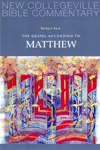

Reviews
The New Testament Commentary Guide: A Brief Handbook for Students and Pastors. Lexham Press, 2020.
Very clean and easy to use. Gupta divides each book into technical and non-technical with a recommended resources in each category. He also has a set of "hidden gems" that covers older or lesser known works.
Mark: Jesus, Servant and Savior. PtW. Crossway, 1989.
Hughes has put together not so much a commentary, but some summary thoughts on things he preached when going through Mark at his church. There are a few interesting illustrations, but the commentary on the text itself is rather limited.
Genesis. CCC. Crossway, 2001.
Love Calvin!
The Essential Commentaries for a Preacher's Library. First Pres Press, 2006.
Thomas and Tweeddale’s work will be helpful to Bible students at all levels, but its layout is especially geared toward preachers (note the title). For each book of the Bible, Thomas categorizes books into “Recommended” (usually 2-4 books), “Consider” (as many as 20) and “Books to be considered for sermon preparation” (another 10-20). He also will occasionally list books which cover an area specific to a particular book of the Bible. Helpfully, he also offers brief annotation to the books in the “Recommended” category, as well as a sentence or two on some of the books in the other categories. In the preface, Thomas mentions that while he generally favors Reformed leaning and Puritan commentaries. He also includes some critical works for discerning readers, but chose not to recommend decidedly Jewish or Roman Catholic commentaries. Though the book is primarily concerned with biblical commentaries, it also contains a section on introductory works and an appendix of theological works.
The book is very user-friendly and well laid out. Unlike Glynn who only bolds recommended works, Thomas’ annotations are helpful. However, the comments are not as lengthy or thorough as Carson, Longman, or Rosscup. That said, the emphasis on older commentaries and commentiaries useful for preaching and that this work covers the entire Bible plus some theological works makes this inexpensive book very valuable and unique.
Commentary and Reference Survey: A Comprehensive Guide to Biblical and Theological Resources (10th ed.). Kregel Academic, 2007.
Glynn’s book is primarily bibliographic lists laid out in categories. He covers a huge range of topics including not only the expected biblical commentaries, but also background and introductory works, theological and historical surveys, and even software and websites. In the biblical commentaries area, he separates volumes into either exegetical or expositional and then notes where they fit on a scale from liberal/critical to evangelical/conservative. For each list he bolds the 2-3 works he recommends. However, unlike the other survey works (Carson, Longman), Glynn offers no comments on the books except on occasion a few words to note things like the millennial perspective of the author of a Revelation commentary.
This system allows Glynn’s work to cover more categories and books than anyone else. The only downside is that a reader will not necessarily know why Glynn recommended a particular work since it is not designed as an annotated bibliography. That said, Glynn is always a helpful starting place for finding works on just about any subject.
Sadly, Glynn passed away shortly after the publication of the 10th edition of his work. The next edition is being edited by professors from Dallas Seminary.
New Testament Commentary Survey (6th ed.). Baker Academic, 2007.
Carson’s recommendations are not broken down into lists (Glynn) or as an annotated bibliography (Rosscup, Longman). Instead, Carson offers a running commentary on the available commentaries on each book of the bible, comparing and contrasting different authors. His comments are equally helpful and hilarious as he pulls no punches if a work is less than stellar. At the end of the book, Carson offers a list of “Best Buys” summarizing his thoughts.
The layout of Carson’s work is helpful in that he directly compares and contrasts works, but it can be a little bit hard to use when one just wants to find his opinion on a single work since that will be buried in several pages of discussion. That small criticism aside, Carson’s thoughts are extremely valuable.
Old Testament Commentary Survey (4th ed.). Baker Academic, 2007.
The layout of Longman’s work seems to be the best of all the commentary bibliographies. For each commentary, he offers not only a paragraph of text discussing strengths and weaknesses, but also a 5-star rating. This makes it very easy to scan through and find information quickly. Like Carson, he also has a list at the end which collects all of his 5-star ratings. He lists all of his commentaries in a separate section.
Though Longman’s work is more limited in scope than Glynn and he does not offer direct comparisons like Carson, Longman’s layout makes his the most user friendly and therefore worth having.
Commentaries For Biblical Expositors. Kress Christian Publications, 2003.
Rosscup is professor emeritus at Masters Seminary and his long history of being a professor shows in this work as he covers older, less well known books than Glynn, Carson, or Longman. At the beginning of the latest edition he offers rankings for each book of the Bible divided into Exegetical, Expositional, and Devotional. In the remainder of the book, he gives a paragraph summary of the strengths and weaknesses of each work. This layout of lists and comments makes his work almost as useful as Longman, though I preferred Longman’s star rating next to each of his annotations.
Rosscup mentions that he consciously does not include volumes that are merely technical and offer no real Christian content. He also includes “devotional” works that Carson, Longman, and Glynn do not include since their emphasis is more academic. This makes Rosscup valuable for preachers and small group leaders, but perhaps not as helpful to those in more academic ministries.
Best Books for Your Bible Study Library. Wipf & Stock, 2004.
Barber differentiates himself from other such books by spending more time discussing how to choose a good commentary rather giving long lists of recommended commentaries. For each book of the Bible, he recommends 3-4 commentaries that are very conservative and in the expositional to devotional range. Barber’s book is much shorter and less comprehensive than others in the field, but it may be valuable for beginning ministers or those who don’t want to spend time wading through more academic works.
Mark. SHBC. Smyth & Helwys, 2007.
The S&H layout make this a great commentary for pastors and bible study teachers preparing lessons. The side notes offer helpful background information that illuminates the text and will help in telling the story to an audience. It is larger than other midrange commentaries (like the NAC), but the downside is it is rather expensive.
Mark. Herm. Fortress Press, 2007.
Collins commentary will probably become the standard technical work on Mark. It has all the excellence of other Hermeneia works, and it is one of the largest, most complete commentaries on Mark to date. In addition to the expected interaction with all the modern critical scholarship on Mark and addressing all the controversial issues of authorship, dating, and multiple endings, Collins really excels at addressing relevant first century Jewish and Greco-Roman literature. In the Hermeneia layout, she is given room to include lengthy quotes so that readers do not have to track them down. Thankfully, this work is not just about scholarly interest, Collins is also very helpful at getting at the meaning of the text.
Mark. AYB. Doubleday, 1986.
If for nothing else, Mann’s work is valuable because he is one of the very few recent scholars to reject the Markan priority. Mann includes almost 200 pages of introductory and background material on Mark, more than any other Mark commentary of which I am aware. The commentary itself is also fairly helpful and remains a commentary on Mark rather than a commentary on Mark commentaries.
Hall, Christopher A.; Oden, Thomas C. eds. Mark. ACCS. InterVarsity Press, 2005.
Some feel the ACCS volumes don’t include enough context to be valuable, but the Mark volume in particular offers something unique. In general, the Church Father’s spent considerably more time in Matthew and Luke, because they viewed Mark to be an edited down text rather than a unique work. This means that the ACCS volume on Mark gleans from very little starting material making the product more valuable. Also, the ACCS works on the gospels are refreshing in that they offer a glimpse as to what is was like to study the life of Christ before critical theory.
Mark 1:1–8:26. WBC. Thomas Nelson, 1989.
Before Guelich’s untimely death, he only finished the first half of his commentary on Mark. It is relatively short on introductory material, but the textual analysis is sizable and in depth. It is important to note that for those interested in redaction criticism Guelich is a must, but for those not familiar with it or uninterested in paragraphs of theories on if or why Mark might have redacted a particular verse, Guelich will be cumbersome.
Mark. Int. Westminster John Knox, 1983.
This work is not bad, but there is nothing particularly noteworthy about it. Brooks work in the NAC is much better for the pastoral level.
Moule, C. F. D. ed. The Gospel according to St Mark: An Introduction and Commentary. Cambridge University Press, 1959.
Cranfield’s commentary is getting a bit dated for in the technical category, but his work is still top notch. He has a robust Christology, never separating the human Jesus from the divine, but continually emphasizes Christ’s dual natures and one person.
Proverbs. BCOT. Baker Academic, 2006.
Longman has some great commentaries out there and the Baker series is usually very good at balancing technical details with significance. However, this work didn’t quite strike the right balance in my use. The background and introductory material are helpful, but because the work is neither fully technical (not much Hebrew interaction) and not fully pastoral or expositional, I personally found that much of the commentary didn’t offer me the depth I needed to move beyond the surface of the text.
Proverbs–Ecclesiastes. SHBC. Smyth & Helwys, 2003.
Horne's commentary may not be a first choice, but offers a few distinct features that make it a great companion volume, especially for preachers and teachers. First, rather than commenting on individual proverbs, much of the work focuses on units of proverbs (sometimes as few as two, but often 5-10) that are thematically related. This is helpful for uncovering some of the reasons why the compiler of the Proverbs might have put the proverbs in the order he did. Second, Horne includes nice historical background including images of items removed from our culture (such as a set of scales: Prov 16:11).
The Book of Proverbs. 2 Vols. NICOT. Eerdmans, 2005.
Watlke’s commentary of more than 1,200 pages is by far the most technically thorough work on Proverbs available to date. His lifetime of studying Proverbs makes this work worthy of all of the praise it gets. Watlke typically offers 2-3 pages of background, syntax, textual criticism, and lexical studies for each individual proverb.
However, while Watlke is a must have for academic work, sometimes the sheer amount of detail he gives obscures the basic meaning and interpretation of many of the proverbs. When preaching through proverbs, I usually find other works such as Clifford’s better for understanding significance and meaning.
Ephesians: An Exegetical Commentary. Baker Books, 2002.
This is not only the best Ephesians commentary available - it is model of what an epistolary commentary should be. Hoehner addresses every major exegetical and theological issue presented by the text and offers pros and cons for each view. The section on authorship is also worth the price of the work.
Proverbs. ICC. T&T Clark, 1899.
Though over century old, Toy's work is still extremely valuable. He quickly notes the types of parallelism and similiar proverbs and offers helpful commentary on each individual proverb. (Note: too early to interact with Amenemope)
Proverbs. TOTC. InterVarsity Press, 1981.
Kinder's introduction is still very valuable, but the commentary itself is extremely short, making this a good second or third companion volume, but not a primary source.
Proverbs. OTL. Westminster John Knox, 1999.
Clifford is excellent at bringing out the pithiness of individual proverbs and seeing their significance and application. He includes just the right amount of background and technical discussion while focusing on meaning. Also includes good background material and connections to other ANE wisdom literature.
